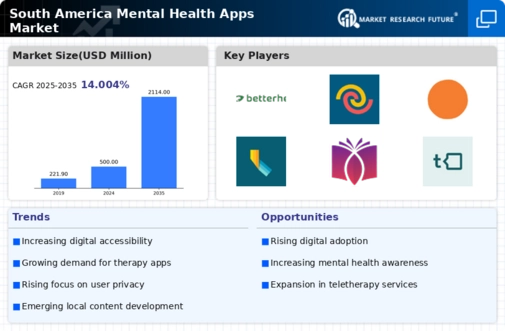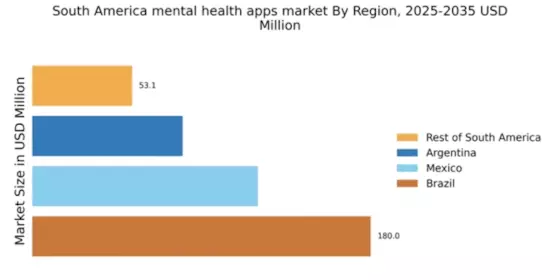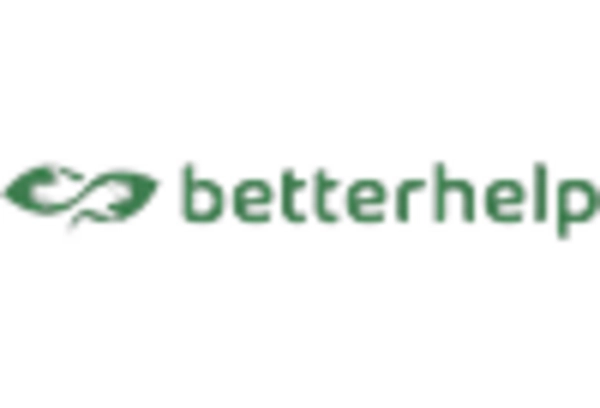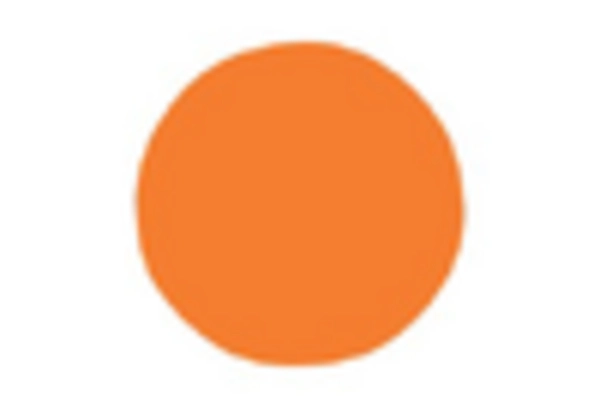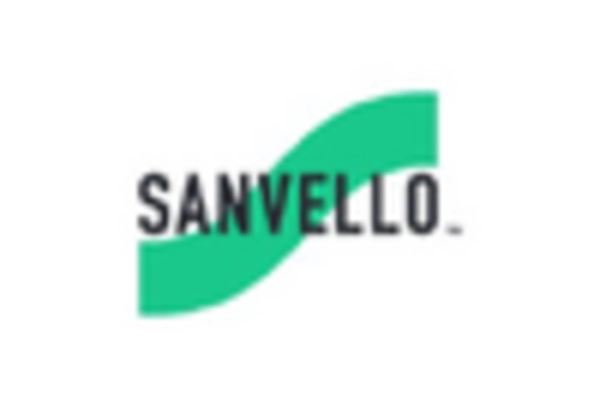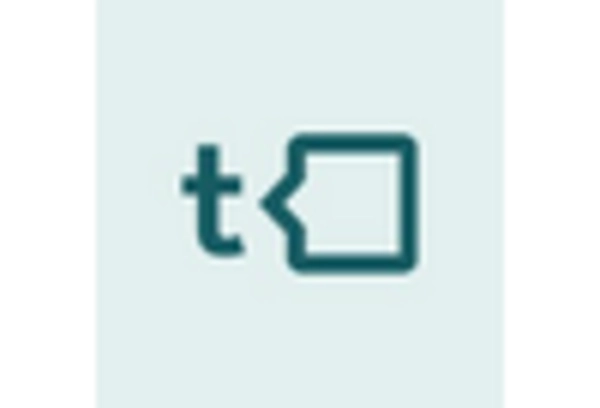Rising Mental Health Awareness
The increasing awareness surrounding mental health issues in South America is a pivotal driver for the mental health-apps market. As societal stigma diminishes, more individuals are seeking help for mental health conditions. Reports indicate that approximately 30% of the population in South America acknowledges experiencing mental health challenges. This growing recognition encourages the adoption of mental health applications, which provide accessible resources and support. Furthermore, educational campaigns and initiatives by governments and NGOs are fostering a culture of openness regarding mental health. This shift in perception is likely to propel the demand for mental health apps, as users seek convenient and private solutions to manage their mental well-being.
Government Initiatives and Funding
Government initiatives aimed at improving mental health services in South America play a crucial role in shaping the mental health-apps market. Various countries in the region are allocating funds to enhance mental health care accessibility, which includes the promotion of digital solutions. For instance, recent budgets have earmarked millions of $ for mental health programs, emphasizing the importance of technology in delivering care. These initiatives not only support the development of mental health applications but also encourage partnerships between public health organizations and app developers. As governments recognize the value of digital mental health solutions, the industry is likely to experience increased investment and support, fostering innovation and expansion.
Integration of Telehealth Services
The integration of telehealth services into the mental health-apps market is emerging as a significant driver in South America. As healthcare providers increasingly adopt telehealth solutions, mental health applications are evolving to include features that facilitate virtual consultations with licensed professionals. This integration addresses the barriers of access and stigma associated with seeking mental health care. Data shows that telehealth usage has surged, with a reported increase of 40% in virtual therapy sessions over the past year. The convenience of accessing professional help through apps is likely to attract a broader audience, enhancing the overall growth of the mental health-apps market. This trend indicates a shift towards more flexible and accessible mental health care options.
Cultural Shifts Towards Digital Solutions
Cultural shifts in South America towards embracing digital solutions are significantly impacting the mental health-apps market. As more individuals become accustomed to using technology for various aspects of their lives, including healthcare, the acceptance of mental health applications is growing. Surveys indicate that nearly 60% of the population is open to using digital platforms for mental health support. This trend is particularly pronounced among younger demographics, who are more likely to seek help through apps rather than traditional methods. The increasing comfort with technology suggests a promising future for mental health applications, as users prioritize convenience and anonymity in their mental health journeys.
Technological Advancements in Mobile Devices
The rapid evolution of mobile technology in South America significantly influences the mental health-apps market. With smartphone penetration reaching over 80% in urban areas, the accessibility of mental health applications is at an all-time high. Enhanced features such as improved internet connectivity and advanced processing capabilities enable developers to create more sophisticated and user-friendly applications. This technological progress allows for the integration of features like real-time chat with therapists, mood tracking, and personalized content. As mobile devices become increasingly ubiquitous, the potential user base for mental health apps expands, driving growth in the industry. The convenience of accessing mental health resources through mobile devices is likely to attract a diverse demographic, further boosting market potential.


